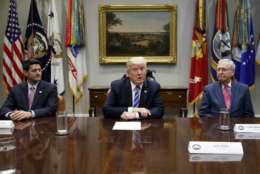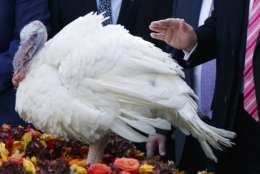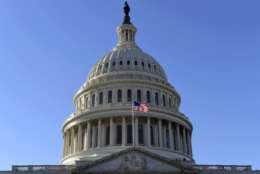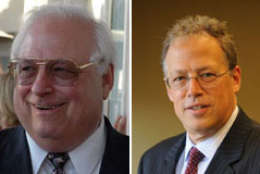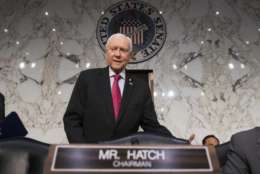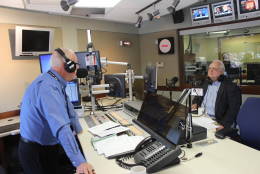Mike Causey
-
Most federal workers rarely change their health plans. Is that a mistake? Find out when Walton Francis, author of the Checkbook Guide to Health Plans for Federal Employees joins host Mike Causey on this week's Your Turn. November 29, 2017
November 28, 2017 -
Active and retired feds in big tax states could take a financial hit if Congress passes the tax "reform" bill eliminating state, local and real estate taxes as federal tax deductions.
November 28, 2017 -
Against statistics and advice, Senior Correspondent Mike Causey says only about 6 percent of health policyholders change plans.
November 27, 2017 -
Senior Correspondent Mike Causey says you could save a lot of money next year on health insurance if you plan ahead
November 24, 2017 -
Thanksgiving may be a federal holiday, but that doesn't mean all of us have the day off. Senior Correspondent Mike Causey salutes those who are working today.
November 23, 2017 -
Every year Uncle Sam holds an open season, when federal workers, retirees and their survivors can update, enroll in or change their benefits package.
November 22, 2017 -
Every year, Uncle Sam holds an extensive and expensive open season when federal workers, retirees and their survivors can update, enroll in or change their benefits package.
November 22, 2017 -
It's open season which means federal workers, retirees and their survivors are updating, enrolling in or changing their benefits package. How can you get the best coverage at the lowest premium? Find out when Walton Francis, author of the Consumer's Checkbook Guide to Health Plans for Federal Employees. joins host Mike Causey on this week's Your Turn. November 22, 2017
November 21, 2017 -
If you work for Uncle Sam and are reasonably healthy, there’s a good chance you can get free health insurance next year.
November 21, 2017 -
The good news is that Congress decided against a proposal to eliminate catchup contributions to the federal Thrift Savings Plan and other 401(k) plans.
November 20, 2017 -
Senior Correspondent Mike Causey says if you're hoping for a $40,000 buyout from your agency, you can forget about it, unless you work for DoD.
November 17, 2017 -
Whatever advantages the non-fed health plan has while you are both working will likely disappear when your spouse retires.
November 16, 2017 -
If you were in a car crash and got hit with a $19,000 medical bill, could you pay for it out-of-pocket, or would your health insurance cover it?
November 15, 2017 -
Do you need to get Medicare Part B? What are the advantages of an HMO? What’s the difference between a self only plan, a self-plus-one plan and a family plan? Walton Francis, author of the Checkbook Guide to Health Plans for Federal Employees, will answer those questions and more when he joins host Mike Causey on this week's Your Turn.
November 14, 2017 -
If somebody offered you $2,000 for two hours of work and it's not illegal, immoral or fattening, would you take it?
November 14, 2017


